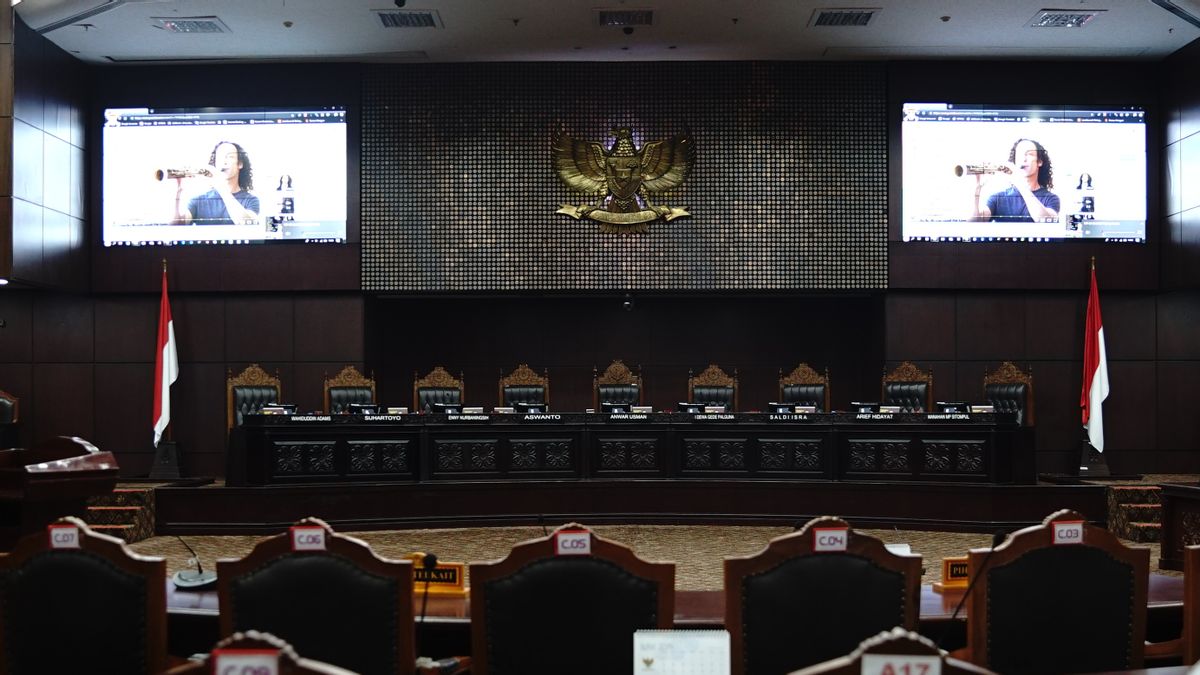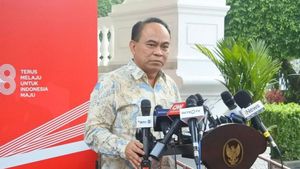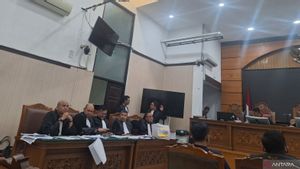JAKARTA - The Constitutional Court (MK) was forced to postpone a number of its trials, as an effort to prevent and minimize the spread of the Corona virus or COVID-19. The policy was outlined and stipulated in the Circular (SE) of the Secretary General of the Constitutional Court.
In the letter issued on March 16, 2020, there are a number of important points relating to activities within this institution. Court activities from March 17 to March 30 were suspended.
The Head of the Public Relations and Domestic Cooperation Section of the Constitutional Court, Fajar Laksono, explained that the trial for reviewing the Law which had been scheduled for the next two weeks would be postponed until an undetermined time. After March 31, 2020, he said, the Constitutional Court will conduct another evaluation before taking the next policy.
"If the situation allows, the trial will be held again. Rescheduling and implementation of the trial will be carried out by giving notification to the parties, in accordance with the applicable procedural law," he said.
Regarding work system management, according to Fajar, all MK employees are instructed to carry out their main duties and official functions by working from and at their respective homes (Work From Home / WFH).

The General Assembly is still going on
Even though the Constitutional Court has postponed a number of trial schedules, to anticipate the corona virus outbreak. The Supreme Court (MA) has not yet decided to postpone the schedule of ongoing hearings in each court.
The Secretary of the Head of Legal and Public Relations Bureau, MA Abdullah, explained that his party ensures that the implementation of general trials for criminal cases in a number of courts will continue to run normally. Even so, the Supreme Court asked the head of the court and the judge to limit the number of visitors to the trial.
"Trials of criminal cases, military crimes, jinayah (criminal cases) will continue to be carried out according to the trial schedule that has been determined," Abdullah said in his short message.
In Supreme Court circular letter No.1/2020 concerning adjustments to the work system of judges and judicial officials in an effort to prevent the spread of COVID-19. "The panel of judges can also limit the number and safe distance between court visitors or social distancing," quoted VOI from the Supreme Court circular.
Meanwhile, for trials with civil, religious, and state administration cases, the Supreme Court invites justice seekers to take advantage of the e-litigation justice system. So there is no need to go to court
Launching from the Hukumonline page, the Supreme Court will hand over the authority to limit the number of visitors in the courtroom, as regulated in safe social distancing related to the transmission of the corona virus. Not only that, the Supreme Court will also ask the head of the Court to prepare an SOP for the prevention of COVID-19.
"For this reason, the provision of hand sanitizer, restrictions on court visitors, and checking the health condition of visitors before entering the court is the policy of the head of the local court," said MA Secretary Achmad Setyo Pudjoharsoyo.
The circular is valid until March 31 and will be evaluated as needed. In addition, judges and court employees who have a history of illness with symptoms of coughs, colds, fever to shortness of breath are asked to check themselves and report to the health ministry's Corona hotline center.
The English, Chinese, Japanese, Arabic, and French versions are automatically generated by the AI. So there may still be inaccuracies in translating, please always see Indonesian as our main language. (system supported by DigitalSiber.id)












